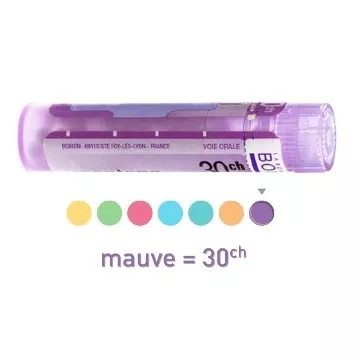






Our team of pharmacists provide you with key information and strategies for managing depressive tendencies and low mood, emphasizing the importance of recognizing symptoms, potential causes, and the various treatment options available. Remember that early management is essential to effectively overcoming these challenges and improving your quality of life.
What is depressive tendency and how does it differ from depression?
Depressive tendency is characterized by a persistently low mood and an inability to experience pleasure in normally pleasurable activities, significantly affecting a person's quality of life. Unlike depression, which can be a temporary emotional reaction to life events, depressive tendency may require professional intervention to manage its more persistent and profound symptoms.
What are the main causes of depressive tendency and depression?
The causes of depression are varied and can include genetic, biochemical, environmental and psychological factors. Stressful life events, hormonal changes, chronic medical conditions and social isolation are among the triggers frequently associated with these conditions.
How can I recognize the signs of depressive tendency in myself or a loved one?
Signs of a depressive tendency include a persistent feeling of sadness, loss of interest in activities previously enjoyed, changes in appetite or weight, mood disturbances, or a lack of energy.tit or weight, sleep disturbances, excessive fatigue, inappropriate feelings of hopelessness or guilt, difficulty concentrating, and thoughts of death or suicide.
What strategies can I adopt to manage depressive tendencies and low mood?
Therapy and counselling: Consulting a mental health professional can help you understand and manage your condition, by exploring the underlying causes of your unhappiness.
Physical activity: Regular exercise is a powerful natural antidepressant, helping to reduce the symptoms of depression through the release of endorphins.
Nutrition: A balanced diet rich in fruit, vegetables and omega-3 fatty acids can have a positive impact on your mood.
Meditation and mind fulness: These practices can help reduce stress and improve emotional management.
Social connection: Maintaining healthy, supportive relationships plays a crucial role in managing depression.
When should I seek professional help for depressive tendencies?
It's crucial to seek professional help if you feel overwhelmed by your feelings, if your symptoms persist for several weeks, if they worsen, or if they interfere with your ability to function on a daily basis. A healthcare professional can assess your situation and suggest a suitable treatment plan.
Are there ways to prevent depression?
Yes, several strategies can help prevent depressive tendencies. These include maintaining a healthy lifestyle with a well-balanced diet and regular physical activity, managing stress through relaxation and mindfulness techniques, and taking care of yourself. through relaxation and mindfulness techniques, developing a strong social support network, and engaging in activities that bring pleasure and meaning to life. While these strategies do not guarantee immunity to depression, they can significantly reduce the risk of its onset.
Can depressive tendencies have consequences for physical health?
Absolutely. Depressive tendencies not only have emotional and psychological repercussions; they can also lead to a variety of physical health problems. Research indicates that depression is associated with an increased risk of cardiovascular disease, diabetes, metabolic syndrome, and reduced immunity, which can make the body more vulnerable to infection. Consequently, it is crucial to treat depression not only to improve mental well-being but also to protect physical health.
What impact do light and the circadian rhythm have on depressive tendencies?
Circadian rhythm, which regulates our sleep-wake cycle, and exposure to natural light play a crucial role in our emotional well-being. An imbalance in our biological clock or insufficient exposure to natural light can contribute to depressive tendencies. Light therapy, which involves exposure to artificial light simulating daylight, is a recognized method of treating certain types of SAD, underlining the importance of these factors in managing depression.
How does depressive tendency affect personal relationships?
Depressive tendencies can have a considerable impact on personal relationships. It can lead to social withdrawal, communication difficulties, and a reduced ability to participate in social or family activities, which in turn can increase feelings of isolation and worsen depressive symptoms. It's important for loved ones to understand that depression is an illness that affects behavior and emotions, not a personal choice, and to provide empathetic and patient support.
Can meditation be an effective practice against depressive tendencies?
Meditation, and more broadly mindfulness practices, are increasingly recognized as effective tools in the management of depressive tendencies. These practices help cultivate an attentive presence in the present moment, acknowledging and accepting thoughts and feelings without judgment, which can reduce stress, anxiety and improve mood. Numerous studies support the use of meditation as an adjunct to traditional treatments for depression, highlighting its potential to improve mental well-being.